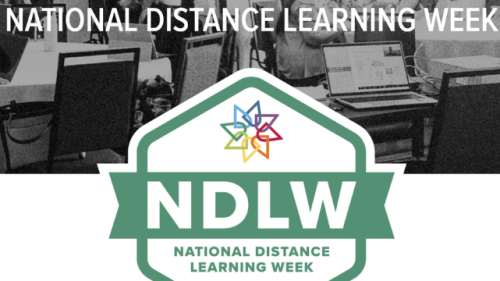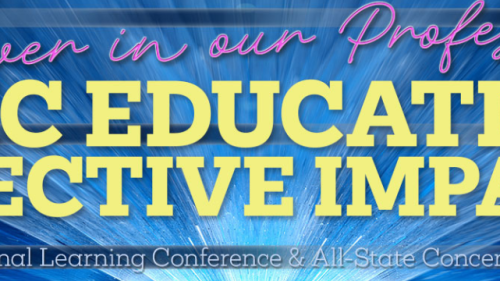Meet Dr. Morris!
Dr. Bradley J. Morris is a Developmental Cognitive Scientist whose research program includes basic research in cognitive development and its application in designing effective PreK-12 STEM instruction. His research focuses on the development of Scientific and Mathematical reasoning and Motivation. The goal of his research program is to identify the mechanisms underlying children’s reasoning (e.g., strategy acquisition) and motivation (e.g., praise type) using a variety of experimental methods (e.g., eye tracking) and computational modeling.
Dr. Bradley is the program coordinator for Kent State’s 100% Online Master of Education in Educational Psychology.
Read on to learn more about Dr. Bradley!
Tell us about your background in the field.
I am a Developmental Cognitive Scientist with a passion for understanding how children learn and think. My journey began with undergraduate studies in Psychology and Anthropology, followed by a Master’s and Ph.D. in Child Development. Over the past 25 years, my research has evolved across various topics, including logic, math, science, motivation, and attachment. My current focus is on children’s cognitive development, particularly in informal settings like family homes and museums, where they naturally explore concepts in math and science.
Tell us about your current research activity.
My research examines how children learn STEM (Science, Technology, Engineering, and Math) concepts both inside and outside of formal school settings. One key area of study focuses on how families engage in science learning at home, such as discussing science concepts while cooking. Another area explores how children make sense of data—we’ve identified intuitive ways children interpret numbers in context and are investigating how to build on these insights in math education.
How much real-world experience is used in your instruction and lessons?
Our program bridges theory and practice, ensuring that students can apply what they learn in real-world settings. We emphasize flexible, student-centered learning, allowing each student to tailor assignments to their interests and career goals. Whether you’re a K-12 educator, museum exhibit designer, or corporate trainer, our courses provide practical applications that deepen understanding. By collaborating with classmates from different backgrounds, students gain valuable insights into how learning theories translate into different professional environments.
What should students look for when choosing a program? What makes Kent State’s online degree stand out?
Students should find a program that aligns with their personal and professional goals. At Kent State, we’ve designed our online program to foster a strong learning community, ensuring that students connect, collaborate, and support one another. Many online programs can feel isolating, but we make sure our students engage in meaningful discussions, build professional relationships, and benefit from a flexible curriculum that adapts to their interests and career paths.
What career benefits does this program offer?
Because of the program’s flexibility and student-centered approach, our graduates successfully advance in their current jobs or transition into new career opportunities. Whether they’re looking to enhance their K-12 teaching methods, move into corporate training, or pursue roles in educational research and policy, our graduates gain valuable skills that open doors in multiple fields.
What’s your favorite student program moment or story?
There are so many! One that stands out was when a student in my class proposed an idea for a science museum exhibit. Several students who were K-12 teachers jumped in with ideas on how to connect the exhibit to their classroom instruction. The discussion was a fantastic exchange of perspectives and expertise, and it helped everyone think in new and creative ways. Afterward, one student told me it was one of the most engaging and inspiring discussions they had ever participated in! Moments like these remind me how rewarding it is to help our students grow and succeed.
What career paths do students pursue after completing this program?
Our graduates go into a variety of fields, depending on their interests and backgrounds. Some of the most common paths include:
- K-12 Education – Many students are teachers looking to expand their instructional skills with evidence-based learning strategies.
- Corporate & Workforce Training – Some work in business or industry, focusing on employee training and organizational development.
- Educational Research & Data Science – We have students interested in data analytics and educational research, helping organizations understand and use data effectively.
- Nonprofit & Informal Education – Students working in museums, libraries, and afterschool programs apply their learning in community education settings.
Who is the online Master’s program designed for?
Our M.Ed. in Educational Psychology is designed for anyone interested in understanding how people learn and applying that knowledge to real-world settings. This includes:
- K-12 teachers looking to enhance their instructional techniques
- Business and industry professionals improving training programs
- Museum and non-profit educators designing engaging learning experiences
- Aspiring data analysts interested in education-related analytics
The program’s flexibility allows students to shape their learning experience to fit their specific career goals.
Are you currently reading any books or listening to any podcasts related to the program?
I highly recommend The Learning Scientists Podcast (Listen here). They do an excellent job of breaking down new research in educational psychology and explaining how to apply it in real-world settings.
What’s the best way for prospective students to contact you?
Email is the best way to reach me! bmorri20@kent.edu. (My Gen Z kids and I agree—phones are for texting, not calling! 😊)
Final Thoughts for Prospective Students
If you’re passionate about how people learn and develop and want to apply that knowledge to education, business, or research, our M.Ed. in Educational Psychology at Kent State is an excellent choice. Whether you’re looking to enhance your teaching, improve workplace training, or explore new career paths, this program gives you the flexibility, support, and expertise to help you succeed.
🚀 Come join us! Feel free to reach out with any questions.









